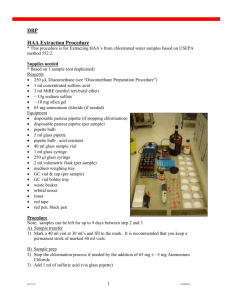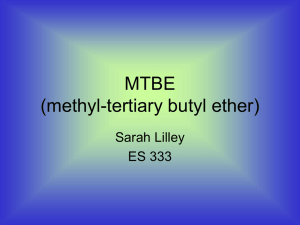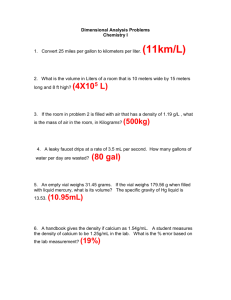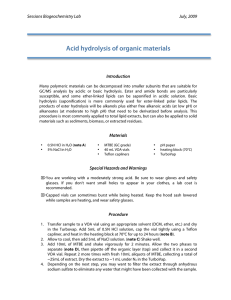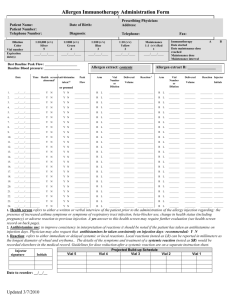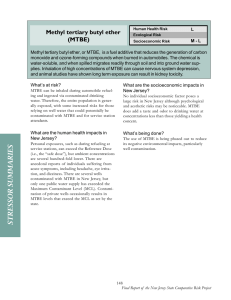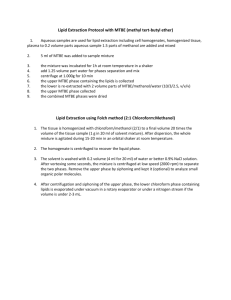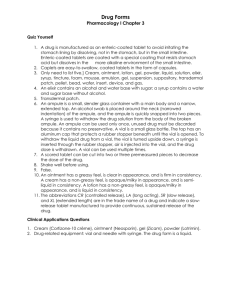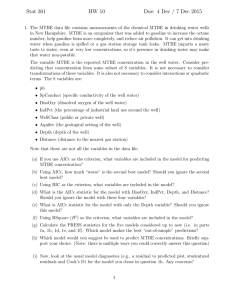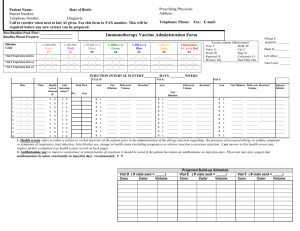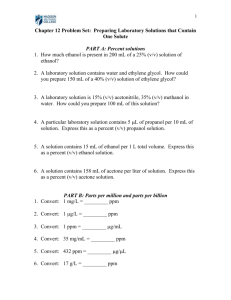DBP - THM Extraction Procedure
advertisement
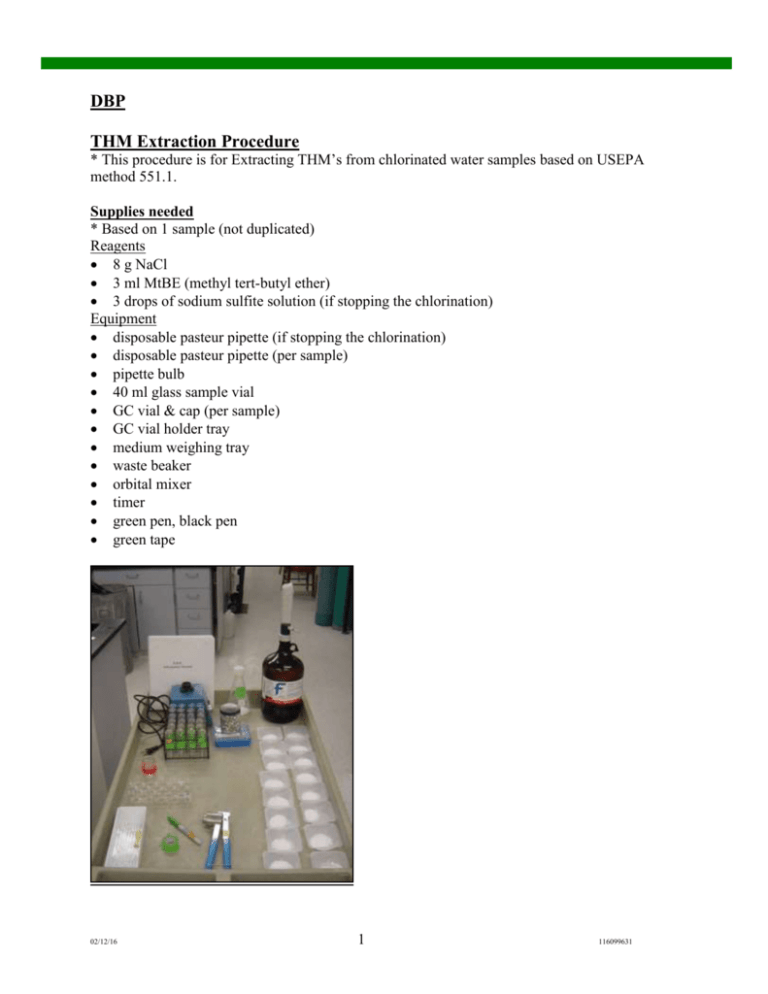
DBP THM Extraction Procedure * This procedure is for Extracting THM’s from chlorinated water samples based on USEPA method 551.1. Supplies needed * Based on 1 sample (not duplicated) Reagents 8 g NaCl 3 ml MtBE (methyl tert-butyl ether) 3 drops of sodium sulfite solution (if stopping the chlorination) Equipment disposable pasteur pipette (if stopping the chlorination) disposable pasteur pipette (per sample) pipette bulb 40 ml glass sample vial GC vial & cap (per sample) GC vial holder tray medium weighing tray waste beaker orbital mixer timer green pen, black pen green tape 02/12/16 1 116099631 Procedure Note: THMs are volatile, so be sure to perform procedure quickly and cap samples when not in use. A) Sample transfer 1) Mark a 40 ml vial at 30 ml’s and fill to the mark. It is recommended that you keep a permanent stock of marked 40 ml vials. B) Sample prep 2) Stop the chlorination process if needed by the addition of 65 mg ~3 mg Ammonium Chloride 3) Add 8 g ~0.1 g of NaCl (decreases solubility of ether in water & increases partitioning). Pre-weighing this for each sample prior to sample prep is recommended. 4) Add 3 ml of MtBE (via bottle top pipetter) 5) Recap vials, shake for 2 minutes on an orbital mixer (until most of salts are dissolved) 6) Let stand for ~15 minutes (for separation). C) Extraction 7) Remove ~ 2 ml of the top organic layer with a pasteur pipette and add to 2 ml volumetric flask. Organic Layer 8) Transfer sample to GC vial and cap. Analyze as soon as possible. Keep sample in freezer. 9) Make one blank with only MtBE Fill with 30 ml sample sodium sulfite (if needed) 8 g NaCl ~2 ml organic layer 3 ml MtBE 1) 2) 3) 02/12/16 2 ~2 ml organic layer to GC vial Cap vial Shake 2 min. Stand 15 min. 116099631 D) Clean-up All residual MtBE and samples should be left in the hood to evaporate. White salt crystals will be left in the waste containers following evaporation; these should be cleaned out after all MtBE has evaporated. QA/QC: THM analysis can have a high variability in results due to the many steps and variables in the process. It is recommended that triplicate analyses be performed on 10% of the samples to quantify the variability in results. 02/12/16 3 116099631
